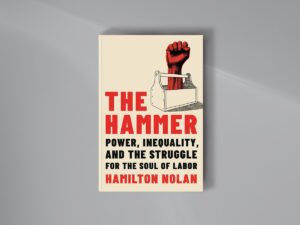
January 21, 2019; Time and CNN Business
A new report from Oxfam, compiled by a 10-person team, finds the global wealth gap growing still greater. The revealed trend of increasing global economic inequality may surprise few, but the report also emphasizes, as Casey Quackenbush writes in Time, that “growing inequality is compromising the fight against poverty.”
“The size of your bank account should not dictate how many years your children spend in school, or how long you live—yet this is the reality in too many countries across the globe,” remarks Winnie Byanyima, executive director of Oxfam International.
The report was released just ahead of the annual meeting of elites at the World Economic Forum in Davos, Switzerland, that will take place January 22nd to 25th—a gathering that author Anand Giridharadas recently labeled “a family reunion for the people who broke the world.”
The report finds that the 26 wealthiest people in the world in 2018 had wealth totaling $1.37 trillion, which works out to over $52 billion per person. Combined, these 26 people have as much wealth as the bottom 50 percent of the world’s population—i.e., 3.8 billion people. This represents an increased concentration of wealth from the previous year, when the 43 wealthiest had as much wealth as the bottom 50 percent.
Billionaires, notes CNN’s Tami Luhby, now number a record 2,208 and “have more wealth than ever before.” According to Oxfam, billionaires’ fortunes climbed 12 percent last year, rising at a rate of $2.5 billion per day. As Oxfam noted last year, this continues a trend of the past decade. Between 2010 and 2017, billionaire wealth has increased by an average of 13 percent a year.
Sign up for our free newsletters
Subscribe to NPQ's newsletters to have our top stories delivered directly to your inbox.
By signing up, you agree to our privacy policy and terms of use, and to receive messages from NPQ and our partners.
But not only that. Even as billionaires see their wealth rise, in 2018 the poorest half of humanity saw their wealth fall 11.1 percent. According to the report, while the bottom half of the world’s population had total wealth of $1.541 trillion in 2017, that fell to $1.37 trillion in 2018, a global decline of $171 billion. While one should be cautious about drawing conclusions based on a one-year data change affecting 3.8 billion people, as there is plenty of room for calculation error, it does seem clear that, at a minimum, the numbers indicate that global progress on reducing worldwide poverty is slowing down. Oxfam’s assessment in this regard is much more pessimistic than, say, the Gates Foundation last fall. In their report, the Oxfam authors detail their claims:
New evidence from the World Bank shows that the rate of poverty reduction has halved since 2013. Extreme poverty is actually increasing in sub-Saharan Africa. This new evidence also shows that much of humanity has barely escaped poverty, with just under half the world’s population—3.4 billion people—subsisting on less than $5.50 a day, which is the World Bank’s new poverty line for extreme poverty in upper-middle-income countries.
The importance of extending public services receives particular attention, which remain lacking in many countries. For instance, the Oxfam report notes that in sub-Saharan Africa, 37 percent lack running water and 65 percent lack access to electricity.
On a more optimistic note, Oxfam identifies some core principles that, if internationally adopted, could lead to reduced global poverty numbers. These principles are:
- Deliver universal free health care, education and other public services that also work for women and girls.
- Free up women’s time by easing the millions of unpaid hours they spend every day caring for their families and homes.
- End the under-taxation of rich individuals and corporations.
Some nations have taken positive steps. Three actions taken in 2018 that receive praise from the report’s authors are:
- “South Korea’s government has increased the minimum wage, raised taxes on the richest people and corporations, and introduced universal child support.”
- “Indonesia’s government has increased the minimum wage and boosted spending on health.”
- “Sierra Leone’s government has made primary and secondary education free and is increasing tax collection from the richest.”
In a foreword to the report, Gro Harlem Brundtland, former prime minister of Norway, notes that Article One of the Universal Declaration of Human Rights says that, “All human beings are born free and equal in dignity and rights.” The report, she adds, is a “reminder of this principle, but also of the huge challenge that remains in turning these fine words into reality.”—Steve Dubb













